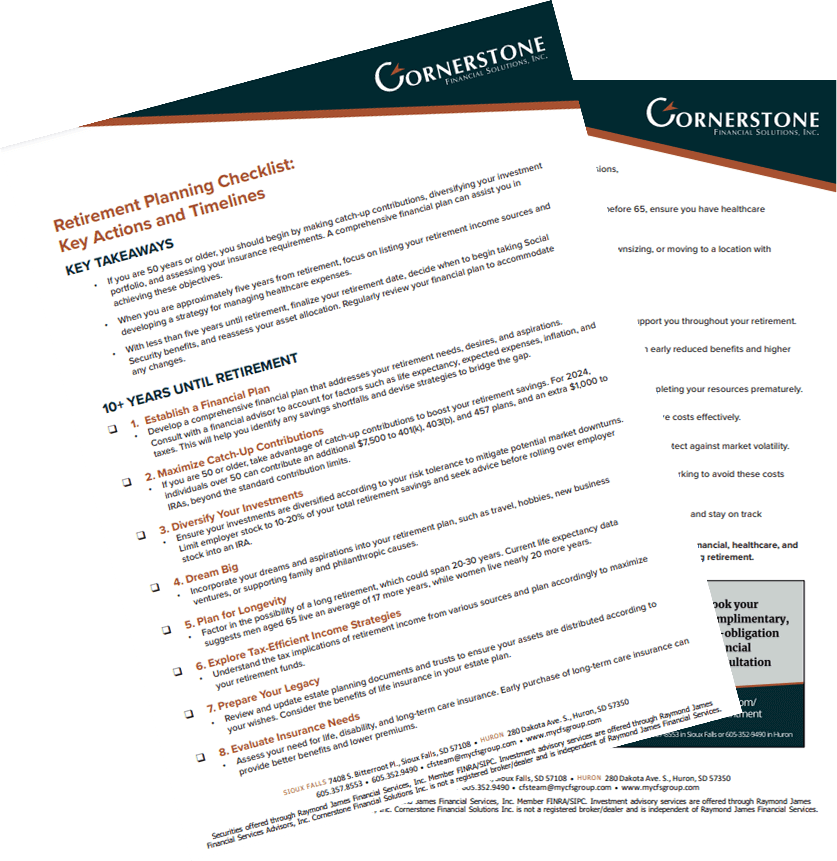5 Considerations for a Successful Social Security Strategy
Considerations for a Successful Social Security Strategy
When it comes to deciding when to claim your benefits and plan your Social Security strategy, there are several key factors to consider. These factors can greatly impact the amount of benefits you receive and your overall financial security in retirement. In this article, we will explore five essential elements that should be a part of your Social Security strategy: age, employment, marital status, taxes, and needs. Understanding how these factors come into play can help you make informed decisions about your Social Security benefits.
1. AGE
Age is crucial in your Social Security strategy. Your monthly benefit depends on lifetime earnings and when you claim. Early claims reduce payments while waiting until age 70 increases them with delayed retirement credits and cost-of-living adjustments. Full Retirement Age (FRA) varies by birth year and serves as the benchmark for receiving your full, unreduced benefit. Planning your Social Security strategy around your FRA can help you make informed decisions about when to claim benefits based on your individual circumstances and financial goals.
2. EMPLOYMENT STATUS
One of the most critical considerations when planning a Social Security strategy is the impact of working while claiming benefits. Understanding the earnings limitations is paramount; claiming benefits before reaching full retirement age (FRA) while earning above the limit can result in reduced Social Security payments, affecting your overall income. Moreover, working can influence your lifetime benefits, with the potential for both temporary reductions due to earnings limits and increases through delayed retirement credits if you continue to work past your FRA. Working while claiming Social Security benefits is a complex but crucial consideration when planning your retirement strategy. It requires a careful balance between income needs, tax considerations, and your long-term financial goals.
3. MARITAL STATUS
Marital status plays a pivotal role in planning for Social Security benefits, with significant differences in how benefits are calculated and accessed. Married individuals often have access to spousal and survivor benefits, which can bolster their combined retirement income. Coordinating when and how each spouse claims benefits becomes crucial to optimizing the household’s Social Security strategy. Conversely, single individuals have no spousal benefits to consider but may have more control over their claiming decisions. Divorced or widowed individuals also have unique considerations, as they can often claim benefits based on their ex-spouse’s or deceased spouse’s work record. Overall, understanding these distinctions in marital status is essential for tailoring a Social Security plan that aligns with your individual and family financial goals and needs in retirement.
4. TAXES
Including tax considerations in your Social Security strategy makes a difference. Taxes can significantly impact your benefits, depending on your modified adjusted gross income (MAGI). This can potentially push you into a higher tax bracket. Careful planning is essential to minimize this tax burden, so be sure to assess the tax implications before claiming benefits. While taxes shouldn’t solely dictate your timing, understanding their impact on your after-tax retirement income is vital. Exploring strategies like early voluntary withdrawals from retirement accounts to manage tax thresholds can help align your Social Security strategy with your unique financial circumstances and goals.
5. FINANCIAL NEEDS
Considering your financial needs is another key aspect of your Social Security strategy. To determine the right retirement timing, assess the cost of sustaining your desired lifestyle without full-time work. Calculate income from external earnings, Social Security, and investments to cover your expenses. Consider factors like inflation, emergency funds, healthcare costs, and long-term care provisions to ensure your financial plan is robust and adaptable to changing circumstances.
Find Support for Your Social Security Strategy
Your Social Security strategy should be a well-thought-out plan that takes into account your age, employment, marital status, tax considerations, and financial needs. Each of these factors plays a significant role in determining the optimal time to claim your benefits and ultimately influence your financial well-being during retirement. Your financial advisor can help you thoughtfully evaluate your situation and determine a strategy to optimize your Social Security benefits.
Contact our office for further guidance and insights.
Call 605-357-8553 or email cfsteam@mycfsgroup.com.
Neither Raymond James Financial Services nor any Raymond James Financial Advisor renders advice on tax issues, these matters should be discussed with the appropriate professional.
Opinions expressed are those of the author and are not necessarily those of Raymond James. All opinions are as of this date and are subject to change without notice. The information has been obtained from sources considered to be reliable, but we do not guarantee that the foregoing material is accurate or complete.
CSP #282179 Exp. 9.17.25







